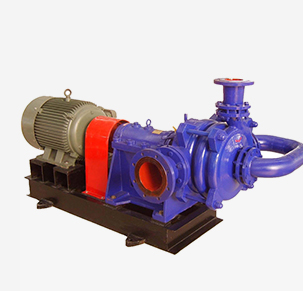Marathi
- Afrikaans
- Albanian
- Amharic
- Arabic
- Armenian
- Azerbaijani
- Basque
- Belarusian
- Bengali
- Bosnian
- Bulgarian
- Catalan
- Cebuano
- Corsican
- Croatian
- Czech
- Danish
- Dutch
- English
- Esperanto
- Estonian
- Finnish
- French
- Frisian
- Galician
- Georgian
- German
- Greek
- Gujarati
- Haitian Creole
- hausa
- hawaiian
- Hebrew
- Hindi
- Miao
- Hungarian
- Icelandic
- igbo
- Indonesian
- irish
- Italian
- Japanese
- Javanese
- Kannada
- kazakh
- Khmer
- Rwandese
- Korean
- Kurdish
- Kyrgyz
- Lao
- Latin
- Latvian
- Lithuanian
- Luxembourgish
- Macedonian
- Malgashi
- Malay
- Malayalam
- Maltese
- Maori
- Marathi
- Mongolian
- Myanmar
- Nepali
- Norwegian
- Norwegian
- Occitan
- Pashto
- Persian
- Polish
- Portuguese
- Punjabi
- Romanian
- Russian
- Samoan
- Scottish Gaelic
- Serbian
- Sesotho
- Shona
- Sindhi
- Sinhala
- Slovak
- Slovenian
- Somali
- Spanish
- Sundanese
- Swahili
- Swedish
- Tagalog
- Tajik
- Tamil
- Tatar
- Telugu
- Thai
- Turkish
- Turkmen
- Ukrainian
- Urdu
- Uighur
- Uzbek
- Vietnamese
- Welsh
- Bantu
- Yiddish
- Yoruba
- Zulu
Telephone: +86 13120555503
Email: frank@cypump.com
ऑगस्ट . 13, 2024 04:46 Back to list
Innovative Solutions for Chemical Transfer with Advanced Pipeline Water Pump Technology in Industry Applications
The Significance of Chemical Pipeline Water Pumps in Industrial Applications
In the realm of industrial operations, the efficiency and reliability of water management systems are paramount, particularly when it comes to chemical pipelines. These systems are designed to transport various liquids, and the role of water pumps is critical. Chemical pipeline water pumps are specifically engineered to handle different types of chemicals, ensuring safe and efficient transport while maintaining system integrity.
Understanding Chemical Pipeline Water Pumps
Chemical pipeline water pumps are robust devices designed to move fluids through pipes, often incorporating intricate systems to accommodate the transport of corrosive or hazardous materials. Unlike standard water pumps, these specialized pumps are built with materials that can resist chemical degradation and wear, such as stainless steel, plastics, or exotic alloys. This durability is essential for preventing leaks and ensuring the safety of personnel and the environment.
Types of Chemical Pipeline Water Pumps
1. Centrifugal Pumps These are the most common type used in chemical pipelines. They utilize a rotating impeller to impart energy to the fluid, making them highly effective for transporting large volumes of liquids at a relatively constant flow rate. Centrifugal pumps can be used for both clean water and more viscous chemicals, making them versatile choices for many industries.
2. Diaphragm Pumps Ideal for transferring corrosive liquids or slurries, diaphragm pumps function by using a flexible diaphragm to create a pumping action. This design minimizes the risk of leakage and is particularly useful in situations where the containment of hazardous materials is critical.
3. Peristaltic Pumps Also known as hose pumps, these pumps are excellent for handling shear-sensitive substances or viscous fluids. They work by compressing and releasing a flexible tube or hose, pushing the fluid through without direct contact, which reduces contamination risks.
chemical pipeline water pump

Applications in Industry
Chemical pipeline water pumps are widely used across various industries, including
- Chemical Manufacturing To handle raw materials and finished products, ensuring that processes run smoothly and efficiently. - Water Treatment Facilities For the transport of chemicals necessary for water purification and treatment, such as chlorine and polymer solutions. - Food and Beverage Industry In transferring ingredients and additives that may require precise handling to maintain quality and safety standards.
Safety and Regulatory Compliance
The transportation of chemicals involves inherent risks, and thus, employing high-quality water pumps is essential for compliance with safety regulations. Pump manufacturers often adhere to stringent industry standards and guidelines, such as those set forth by the American National Standards Institute (ANSI) and the American Society of Mechanical Engineers (ASME). Regular maintenance and inspections are critical to ensuring that these pumps function correctly and safely over time, reducing the likelihood of accidents or hazardous spills.
Future Trends
Innovation in pump technology is continually evolving, with advancements aimed at increasing efficiency and reducing energy consumption. The integration of smart technologies, such as IoT sensors, allows for real-time monitoring of pump performance, predictive maintenance, and enhanced operational efficiencies.
In conclusion, chemical pipeline water pumps are a vital component of modern industrial operations. Their role extends beyond mere fluid transport; they are integral to maintaining safety and regulatory compliance while ensuring efficient process management. As industries continue to evolve, the importance of reliable water pump systems in managing chemical flows will only grow, underscoring the need for ongoing innovation and investment in this critical area.
-
Horizontal Split Case Pump with GPT-4 Turbo | High Efficiency
NewsAug.01,2025
-
ISG Series Pipeline Pump - Chi Yuan Pumps | High Efficiency, Durable Design
NewsAug.01,2025
-
Advanced Flue Gas Desulfurization Pump with GPT-4 Turbo | Durable & Efficient
NewsJul.31,2025
-
ISG Series Vertical Pipeline Pump - Chi Yuan Pumps | Advanced Hydraulic Design&Durable Construction
NewsJul.31,2025
-
ISG Series Vertical Pipeline Pump - Chi Yuan Pumps | Energy Efficient & Low Noise
NewsJul.31,2025
-
pipeline pump - Chi Yuan Pumps Co., LTD.|High Efficiency&Low Noise
NewsJul.31,2025










